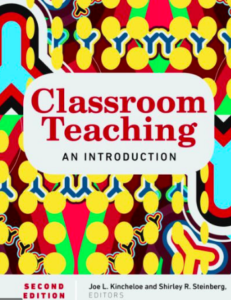Reading the Word and the World:
A Conversation with Shirley Steinberg
In Part 1 Prof. Shirley Steinberg speaks with us amid a global pandemic. For some of us, this pandemic has exposed what we already new about neoliberal higher education: the proliferation of the banking model of education, top-down power relations, undemocratic classrooms and departments, etc. In her work in critical pedagogy, Steinberg has long been challenging and resisting the status quo.
In Part 2 Steinberg talks further about the Freirean foundations of her education theory and practice. She calls on teachers and students to live out righteous indignation in our educational systems and how to create resistance and change. “We have to be in stealth,” says Steinberg, and shed light on how our institutions have failed us. Steinberg finds it important to listen to students, and to engage with youth culture, in order to lead collegially with them.
about our guest/s
Prof. Shirley Steinberg is the Werklund Research Professor of Critical Youth Studies at the University of Calgary, Canada. Steinberg embodies Paulo Freire’s dictum of “reading the word and the world,” as is evidenced in her work in youth and cultural and media studies, anti-imperial education, constructivist theory, qualitative research, critical diversity studies, refugee studies, combatting Islamophobia, and more.
Steinberg lives out her research with her global and local work, in particular with refugees and youth. With her late partner Joe Kincheloe, Steinberg co-founded The Paulo and Nita Freire International Project of Critical Pedagogy which deals with “critical, cultural community, youth and media activism,” and she serves as the Executive Director. She is the founding editor of the journal Taboo: The Journal of Culture and Education and The International Journal of Youth Studies, and is on the board of The International Journal of Critical Pedagogy. She is the author of numerous books and articles in the field of critical pedagogy.
Steinberg is the recipient of many awards, including the Paulo Freire Lifetime Achievement Award for Social Justice and Education (from the American Educational Research Association, 2011). We talked to Prof. Steinberg in the midst of a global pandemic. For some of us, this pandemic has exposed what we already new about neoliberal higher education: the proliferation of the banking model of education, top-down power relations, undemocratic classrooms and departments, etc. In her work in critical pedagogy, Steinberg has long been challenging and resisting the status quo.


